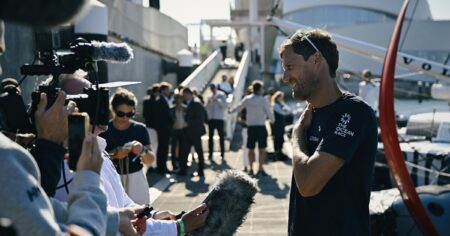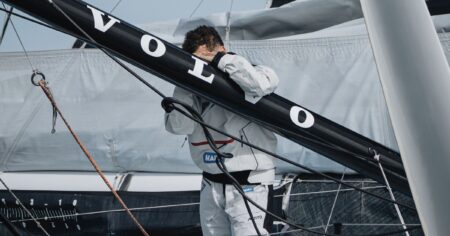The Tour de France is known not only for its breathtaking landscapes and the grueling endurance it demands from riders but also for the unpredictable elements, including the weather. As competitors tackle the daunting mountain stages, the effects of atmospheric conditions become increasingly significant, influencing team strategies and individual performance. Recently, two-time champion Tadej Pogačar expressed a preference for sunny weather as he prepares for the looming challenges of the Tour, raising questions about how adverse conditions could impact the overall general classification (GC) battle, especially on key stages known as “Queen Stages.”
Queen Stages are pivotal in the Tour de France, typically characterized by steep climbs, arduous terrain, and substantial elevation changes. These stages are designed to separate the contenders from the pretenders, often leading to great drama as athletes battle not only their fellow competitors but also the elements. For Pogačar and others vying for the yellow jersey, a stage imbued with rain, wind, or cold temperatures could pose numerous complications, both physiologically and psychologically.
The Slovenian cyclist’s preference for sunshine is indicative of a broader concern within the peloton. Climbers, like Pogačar, thrive in dry, warmer conditions, where energy levels can be sustained more efficiently. Conversely, poor weather can sap energy, enhance fatigue, and pose the risk of accidents due to slippery road surfaces. Rain could potentially lead to treacherous descents, where riders need to exert utmost control of their machines while navigating sharp turns and steep downhill stretches. Such factors could alter race dynamics significantly, creating opportunities for unforeseen outcomes.
Moreover, the psychological impact of inclement weather cannot be underestimated. Riders accustomed to sunny training conditions may find mental resilience tested in poor weather. The emotional toll of battling chilling winds or relentless rain can diminish morale and influence decision-making during crucial racing moments. A stage that initially seemed straightforward could rapidly morph into a tactical nightmare, as riders not primarily known for their climbing capabilities may seize unexpected chances to perform well in adverse settings.
Team strategies will inevitably shift due to weather considerations. Teams with stronger climbers may prioritize staying together to protect their lead riders during the initial parts of the stage, allowing burned energy to be conserved for crucial attacks. Conversely, teams that recognize their GC contenders may struggle in wet conditions might decide to employ more aggressive tactics early on, forcing rival teams into uncomfortable positions before they can settle into a rhythm.
Historical precedents in the Tour de France indicate that weather can level the playing field among competitors. Stages that feature rain or poor visibility have previously enabled lesser-known riders to capitalize on mistakes by favorites, leading to a shake-up in the overall standings. As the narrative continues to unfold, the unpredictable nature of the elements adds layers of excitement and suspense, captivating fans and commentators alike.
In conclusion, Tadej Pogačar’s inclination towards sunshine highlights a crucial factor in individual performance and overall competition within the Tour de France. As the Queen Stage approaches, the ramifications of weather—be it rain, wind, or cold—could reshape the battle for the coveted yellow jersey. Whether Pogačar’s preference translates into actual performance remains to be seen, but the anticipation surrounding this potential battle against the elements guarantees that the upcoming stages are sure to be compelling. As fans, we can only hope for thrilling racing that results from both the riders’ efforts and Mother Nature’s whims.












